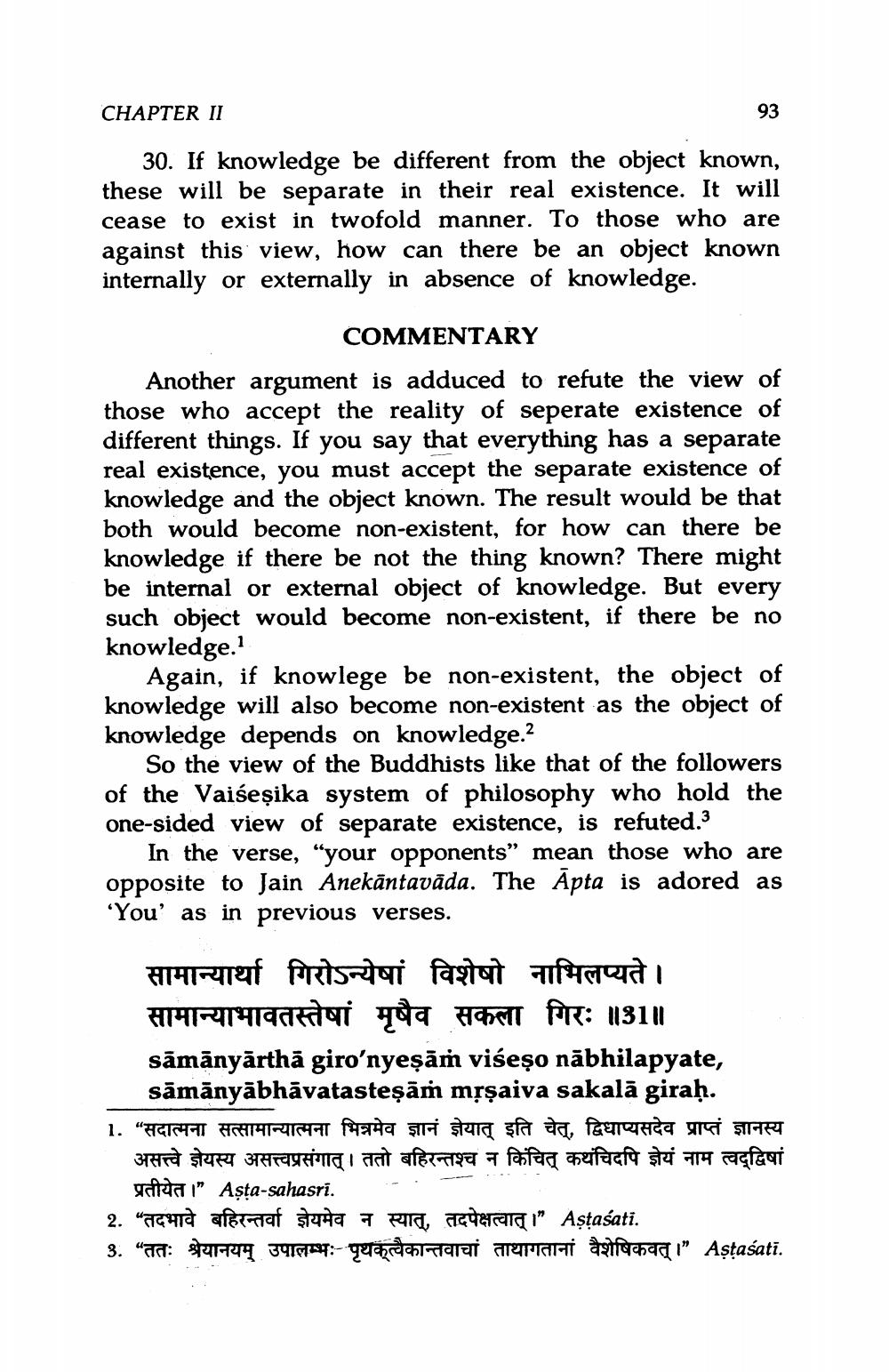________________
CHAPTER II
93
30. If knowledge be different from the object known, these will be separate in their real existence. It will cease to exist in twofold manner. To those who are against this view, how can there be an object known internally or externally in absence of knowledge.
COMMENTARY
Another argument is adduced to refute the view of those who accept the reality of seperate existence of different things. If you say that everything has a separate real existence, you must accept the separate existence of knowledge and the object known. The result would be that both would become non-existent, for how can there be knowledge if there be not the thing known? There might be internal or external object of knowledge. But every such object would become non-existent, if there be no knowledge.1
Again, if knowlege be non-existent, the object of knowledge will also become non-existent as the object of knowledge depends on knowledge.2
So the view of the Buddhists like that of the followers of the Vaiseṣika system of philosophy who hold the one-sided view of separate existence, is refuted.3
In the verse, "your opponents" mean those who are opposite to Jain Anekantavāda. The Apta is adored as 'You' as in previous verses.
सामान्यार्था गिरोऽन्येषां विशेषो नाभिलप्यते । सामान्याभावतस्तेषां मृषैव सकला गिरः ॥31॥
sāmānyārthā giro'nyeṣām viseṣo nābhilapyate, sāmānyābhāvatasteṣāṁ mṛṣaiva sakalā giraḥ.
1. “ सदात्मना सत्सामान्यात्मना भिन्नमेव ज्ञानं ज्ञेयात् इति चेत्, द्विधाप्यसदेव प्राप्तं ज्ञानस्य असत्त्वे ज्ञेयस्य असत्त्वप्रसंगात् । ततो बहिरन्तश्च न किंचित् कथंचिदपि ज्ञेयं नाम त्वद्विषां "Asta-sahasri.
2. “ तदभावे बहिरन्तर्वा ज्ञेयमेव न स्यात्, तदपेक्षत्वात् । ” Astaśati.
3. “ततः श्रेयानयम् उपालम्भः पृथक्त्वैकान्तवाचां ताथागतानां वैशेषिकवत् । ” Astasati.




